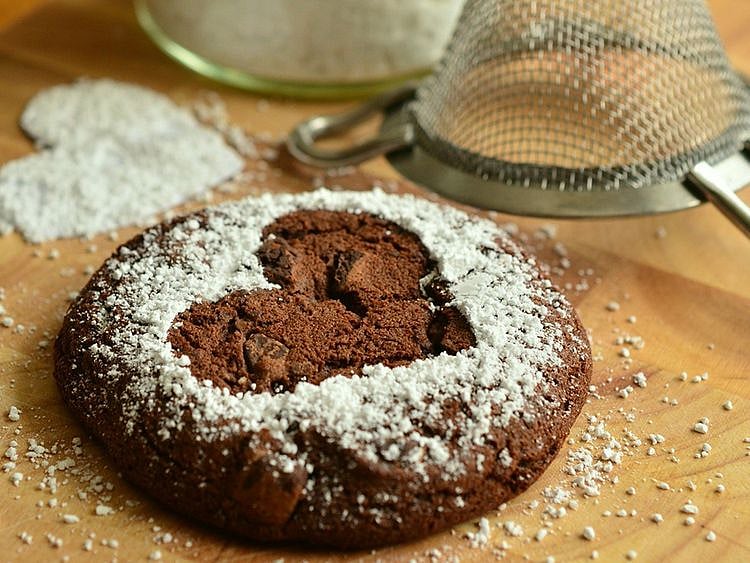Baking hacks – 5 substitutes for baking powder
If you ever run out of baking powder these ingredients will come handy

You see ripened bananas in your fruit basket, and the first thing that probably strikes you is to bake banana bread. You quickly scan through the ingredients in your kitchen, and luckily, you have everything you need – milk, eggs, sugar, salt, even baking soda. But … you have run out of baking powder.
How are you going to replace the leavening agent that will make your banana bread rise? Do you park the baking thought or quickly look for substitutes? Well, there are substitutes.
How vital is baking powder?
Very. Baking powder is a leavening agent, and often-amateur bakers use it interchangeably with baking soda. However, these terms must not be confused. Baking powder and soda are both leavening agents but are chemically different. They act differently when mixed with liquid and upon heating.
Baking powder is a mix of baking soda (sodium bicarbonate), cream of tartar (dry acid), and cornstarch. There are two types of baking powder – single acting and double acting. Single-acting baking powders are made of sodium bicarbonate and one acid. They are also called fast-acting powders. This means they react very quickly when hydrated, i.e., when mixed with dry and wet ingredients.
Double-acting baking powders are slower to react. The reaction – baking powder mixed with sodium bicarbonate releases carbon dioxide when combined with a liquid. This causes cakes and baked items to rise.
Talking of double-acting baking powders, it might sound like they are made of two acids, but that is not the case. They have the same ingredient. However, the acid reacts two times, like explained.
Double acting baking powders are most commonly available in markets today.
When should you use single agent and double-acting baking powder?
An example where a single agent or fast-reacting agent is used is while preparing doughnuts. To prepare doughnuts, the wet and dry ingredients are first mixed to form a paste-like consistency and then kept aside for 5 to 10 minutes before deep-frying. The fast-reacting agent, in this case, has already reacted with the mixture and will not react any further in oil.
This is one of the reasons why most doughnut makers use fast-reacting agent, so that it reacts quickly, at room temperature, before going in hot oil.
However, if you were to use a double acting baking powder, chances are that the doughnuts will develop cracks on the exterior. A classic example of why some baked dishes develop cracks while baking/heating.
It’s simple if the mixture is to be deep-fried or cooked immediately, then choose a fast-reacting agent. For cakes, where the batter has to be kept aside and baked for longer hours, go for the slow-reacting agent.
Most recipes call for a double-acting kind of baking powder, and they are more widely used across households.
So the next time you run of baking powder in the middle of a baking project, look around for some of these pantry staples and just wing it.
Here are five substitutes for baking powder:
Lemon juice or white vinegar:
Lemon juice or white vinegar is a neutral-tasting agent that reacts with baking soda to give cakes, pastries and pie a rise. To replace one tablespoon of baking powder, you will need – quarter teaspoon baking soda, half teaspoon white vinegar or lemon juice.
Plain yoghurt:
Plain yoghurt makes for a great substitute with a natural acidic property, but you have to be careful about the quantity.
Sour milk:
If you have milk that has turned sour and not yet curdled, it means the process of fermentation has begun. It contains lactic acid, which will activate baking soda. The probability of having sour milk (not spoiled) when you are looking for a baking powder substitute is rare. But in case you have, use it the same way you would combine yoghurt as mentioned previously.
Self-raising flour:
Self-raising flours come with premixed leavening agents, so this makes it an easy substitute too. For this, you will need to mix self-raising flour to all-purpose flour in equal ratio – 1:1 and not add any other leavening agent included in the recipe. A cup of self-raising flour has half to one teaspoon of baking powder and quarter teaspoon of salt.
Molasses:
Molasses is not very acidic, but it acts as a leavening agent when mixed with baking soda. It’s basically boiled sugar cane juice and tastes sweet. However, be wary, as it will add sweetness to the existing recipe. If you have sugar in your recipe, reduce its quantity to balance it out. Make sure to consider that juice is a liquid, so reduce the amount of other liquid in the recipe. You will need one fourth cup of molasses and a quarter teaspoon of baking soda to replace it for one teaspoon of baking powder.
Tell us about your favourite baked dishes and recipes at food@gulfnews.com
Sign up for the Daily Briefing
Get the latest news and updates straight to your inbox
Network Links
GN StoreDownload our app
© Al Nisr Publishing LLC 2026. All rights reserved.